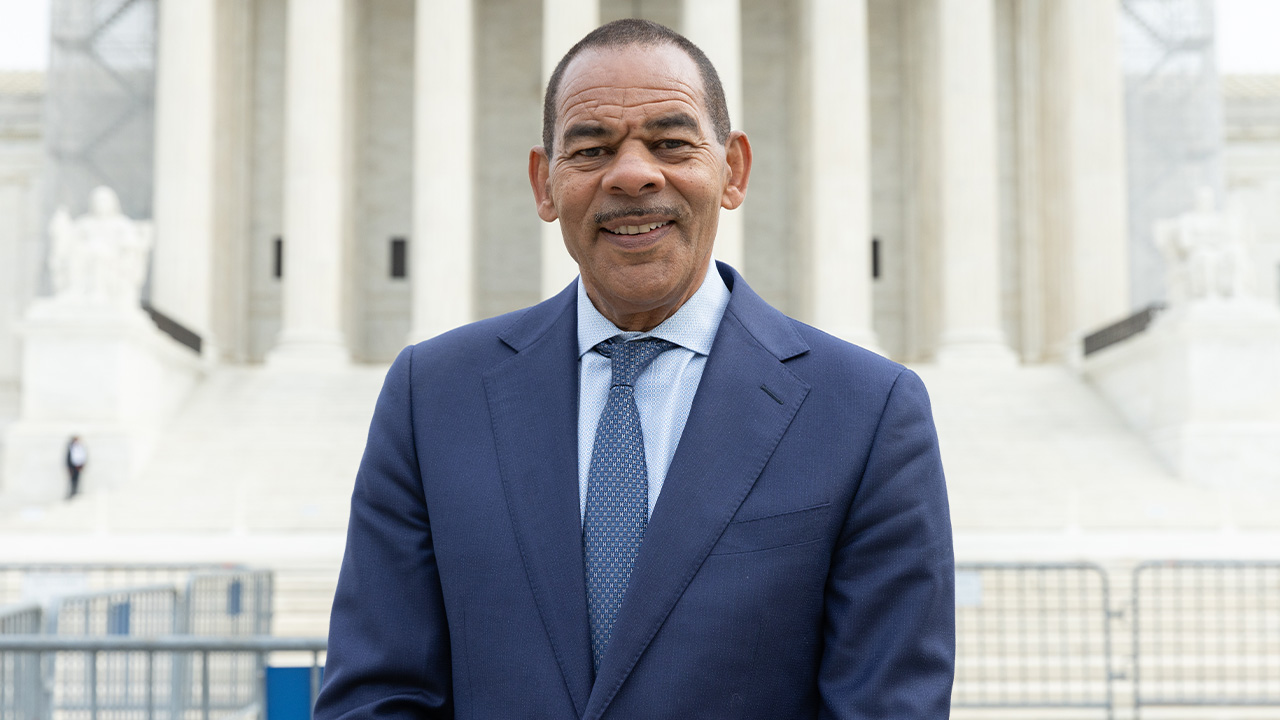By Harsh Arora and Nicholas M. Fiorello
As the attention turns away from complete shutdown to a restart of not only the American economy, but also the world’s economy, businesses in Florida will strive to re-open and re-establish normal operations.
Despite the need, and ensuing preparation, businesses will need to remain in survival mode in order to outlast the impact of the coronavirus

pandemic. As such, businesses must be proactive and consult with counsel when planning for the non-uniform, staged approach for re-openings that has already been initiated in some states. Businesses should plan on how they will communicate to their vendors, customers, and landlords, as well as what messages they will deliver in order to return to functioning status. In addition, it is also important for businesses to have a plan on implementing internal procedures on protecting their employees, which is not covered in this article.
The topic of re-opening has been controversial, and although the consensus by governmental authorities in Florida leads to a plan for re-opening in phases, businesses must remain very careful not to ignore the rules or boundaries placed on the re-opening process by local and state officials. Additionally, as the local, state, or national guidance is geared towards reviving the economy, the guidance provided may be deemed arbitrary or risky. As such, businesses will have an additional burden to protect themselves. The following are seven important points that businesses should consider to fully or partially open their operations as statewide and local orders requiring temporary business closures are gradually lifted:
Create or Implement a Disaster Recovery Plan
Businesses will likely be forced to implement a disaster recovery plan in order to stay afloat. Incorporating an immediate solution in the interim, as well as establishing a permanent rebuilding model can help a business navigate through these uncertain times.
Moreover, as a part of their disaster recovery plan, businesses will need to place aside funds to serve as backup reserves. These reserves would be in place in preparation for another potential outbreak of coronavirus that may occur later this year, another type of virus that may arise in the future, or natural disaster that may occur. Further, backup reserves are necessary because, as this ongoing pandemic has highlighted, insurance is not necessarily reliable due to the world being in flux. There are vast uncertainties as to what exclusions and coverages are available, or even applicable to pandemic-related claims. Although many insurers have taken the position that business interruption insurance claims related to the coronavirus will be denied, courts have yet to provide clear guidance on the matter. Federal or state governments may soon enact laws or regulations affecting coverage evaluations. Thus, businesses should carefully review their business interruption insurance policies, and take steps to preserve potential claims with their carrier, while documenting losses attributable to the coronavirus. Being proactive, including promptly notifying insurers of any potentially covered loss or claim, while collecting and preserving documents demonstrate all financial losses due to disruptions caused by this pandemic, may lead to an eventual successful claim. Businesses should consult with counsel to review the applicable insurance policies, including all exclusions and coverage, to determine what may be potentially covered, and for assistance in initiating the claim application and document retention process.
Prepare For the Phased Re-Opening
Governor DeSantis ended Florida’s statewide Stay-At-Home Order on May 4, except for South Florida. Palm Beach County was starting Phase 1 on Monday, May 11, and there are signs the Miami-Dade and Broward counties may soon follow. DeSantis has assured that his plan for re-opening Florida would be in a “measured, thoughtful and data-driven way.” He has also hinted at a slow-paced re-opening, mirroring guidelines provided by the Trump administration, in order to prevent any rebound of the virus, which would lead to a return to the expiring Stay-At-Home Order. The timeline for entering the following three phases, and the relevant details remain to be seen.
Thus, businesses must prepare for the slow and elongated re-opening process. As such, businesses should tailor their services and/or products in their transactions with customers and vendors to limit their exposure to liability stemming from such guidelines, rules, ordinances, and the like. Businesses must fight the urge to recover lost profits as quickly as possible because doing so may expose them to legal liability. Business decision makers should remain careful in undertaking massive orders from customers and/or order large amounts of stock from vendors, which cannot be met or fulfilled without violating the safety protocols provided by local, state, and federal governments. Instead, reasonableness must be the focus of a business during the uncertain times surrounding this phased re-opening, and businesses should not go beyond the limitations that have been placed by government officials. Thus, businesses, no matter what industry they are in, and to avoid potential legal liability, should consult with their counsel to prepare a detailed strategy for re-opening, including strictly adhering to the guidelines and limitations controlling the re-opening.
Cutting Costs May Prevent Growth
For some businesses, cutting costs may be necessary for survival. For others, it may be seen as a preemptive measure as a part of the business’ recovery plan. Nevertheless, before coming to a decision, businesses should take a thorough review of their finances, even if that means hiring a consultant or an accounting professional. Cutting costs potentially limits the ability for the business to generate revenue in order to keep the business moving forward, in the right direction. Keeping employees around, or bringing back previously released employees, allows for growth. Growing out of this crisis may be the only way out for some businesses.
Review Business Model and Determine Viability
In line with the above-two points, business decision makers should review the implemented business model to determine if it is sufficiently viable to make it through times of uncertainty. If the business model is insufficient, then it should be determined as to what adjustments are necessary to the fundamentals of the business in order for the business to outlive the pandemic and then, after the dust settles, to survive the new reality that has been created as a result of the pandemic. This is a time for businesses to be pragmatic, resourceful, and embrace reinvention, but to do so in a reasonable manner. Businesses should consider how new or different operations can help relaunch, reinvent, or continue their brand, but should not attempt to overreach into providing goods or services in a manner where they will not be able to survive. Maintaining a reasonable outlook may prevent a business’ exposure to legal liability.

Moreover, businesses should embrace e-commerce. The ongoing pandemic has forced consumers to adapt to e-commerce and this shift may have permanently altered the business-consumer relationship. Thus, it is extremely important for businesses to consult with their counsel to make sure they implement well-crafted terms and conditions to provide protections to the uncertainties of e-commerce as well as confirm compliance with advertising, marketing, and relevant sales tax laws. Online transactions, although already prevalent, may just be the new normal.
Review Supply Chain
The tough reality is that a business’ supply chain may no longer be what it once was prior to the ongoing pandemic and resulting shutdown. A business’ usual vendors and/or customers may no longer be in business, may delay re-opening, may not be permitted to re-open, or may no longer have the necessary funds to transact. Thus, a business may be required to find new vendors and customers to transact business.
Vendor relations may also be different. Vendors, both new and existing, may no longer feel comfortable transacting on a credit-system where payments occur later on, and may require cash-on-delivery. Additionally, as previously discussed, customers may no longer want, or may not be allowed, to visit a business until the pandemic further dissipates. This requires a business to incur additional costs for shipping or warehouse fulfillment in order to continue satisfying their customers’ needs. Therefore, as mentioned in the following section, businesses should consult counsel to review their relevant contracts with vendors and customers to try to limit their exposure to legal liability.
Review Contracts, Commercial Leases, and Loans
Businesses should review all of their current contracts, especially those with vendors, customers, landlords, and lenders. Businesses must determine whether forbearance, deferment, or an extension of any performance obligations under their contracts is necessary. Both forbearance and deferment can help a business hit the pause button when financially struggling. Forbearance is an agreement between a business and its lender where the lender accepts reduced payments or no payments for a certain period, and the business then continues to make its regular payments when that period ends. The business will then have to pay the amount that it did not pay during the allocated time-period, sometimes incurring interest and fees. A deferment, similar to a forbearance, is also an agreement between a business and its creditor. However, in a deferment, a business’ payments freeze for a period, and then are added to the end of the loan or other payment obligation, thus extending the time it had been avoided. Unlike a forbearance, under a deferment, additional interest and fees do not accrue during such time that the loan or other payment obligation is put on hold.
Some contracts may require re-negotiations and/or amendments to ease the transition from shutdown to full operations, however quickly or slowly the process takes. Most landlords of commercial properties understand the complexities surrounding the pandemic and the effects on businesses from the resulting closures. Therefore, many landlords of commercial properties have provided avenues for rent deferments or amendments to commercial leases.
It is prudent of all businesses existing in a leased brick and mortar structure to contact their landlord and consult counsel to review all applicable commercial leases. If the landlord has not already reached out to a tenant-business, then that business, through its counsel, should proactively attempt to contact the landlord in order to renegotiate relevant lease terms and establish amendments to the lease, or request rent deferment information. Reviewing all applicable contracts, commercial leases, and loans with the assistance of counsel will allow businesses get ready to re-open. Businesses must do the analysis on how they can afford all payments due in order to stay afloat and re-open operations.
Apply For Relief Options
Businesses should continue to apply for federal, state, and local relief options, if they have not already. At the federal level, there is the Paycheck Protection Program (PPP). The first round of government funds allocated to small businesses quickly ran dry but small businesses are getting a second chance at a financial lifeline through the passage of the Paycheck Protection Program and Health Care Enhancement Act.
Additionally, several resources at the state and local levels may be able to provide many forms of assistance to businesses. Businesses can turn to federal tax credits, and private companies, local governments, or organizations that are offering grants and other resources to businesses that have been negatively affected by the pandemic. In addition to financial support, businesses can seek non-financial assistance in the form of local economic development groups or community development financial institutions.
These are just some relevant pointers for businesses to ponder while Florida continues to move forward towards re-opening businesses and the economy. As more information will continually unfold, businesses should do what they can to be proactive by consulting with their counsel, in order to assist in keeping their operations afloat and to mitigate any further injury as a result of the current coronavirus pandemic. These are unprecedented times, and the information regarding re-opening of businesses is constantly changing due to local, state, and federal governmental action. Given the speed and fluidity of current events, the comments in this article represent best interpretations of new laws. Future governmental rulings and interpretations could change and potentially alter the information provided in this article. It is advised that businesses should continue to keep current with the new changes in regulation through continual dialogue with professional advisors.
Harsh Arora is a partner with Kelley Kronenberg, P.A., in Fort Lauderdale. He focuses his practice on business litigation and handling complex and international corporate transaction matters. He has represented multinational businesses as their outside general counsel. Contact him at harora@kklaw.com. Nicholas M. Fiorello is an attorney at the firm. He also focuses his practice on business litigation and handling corporate transaction matters. Contact him at nfiorello@kklaw.com.















